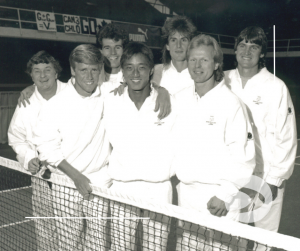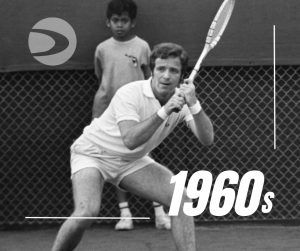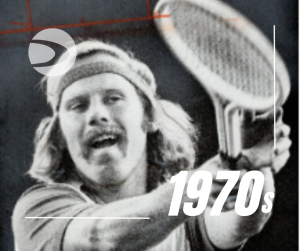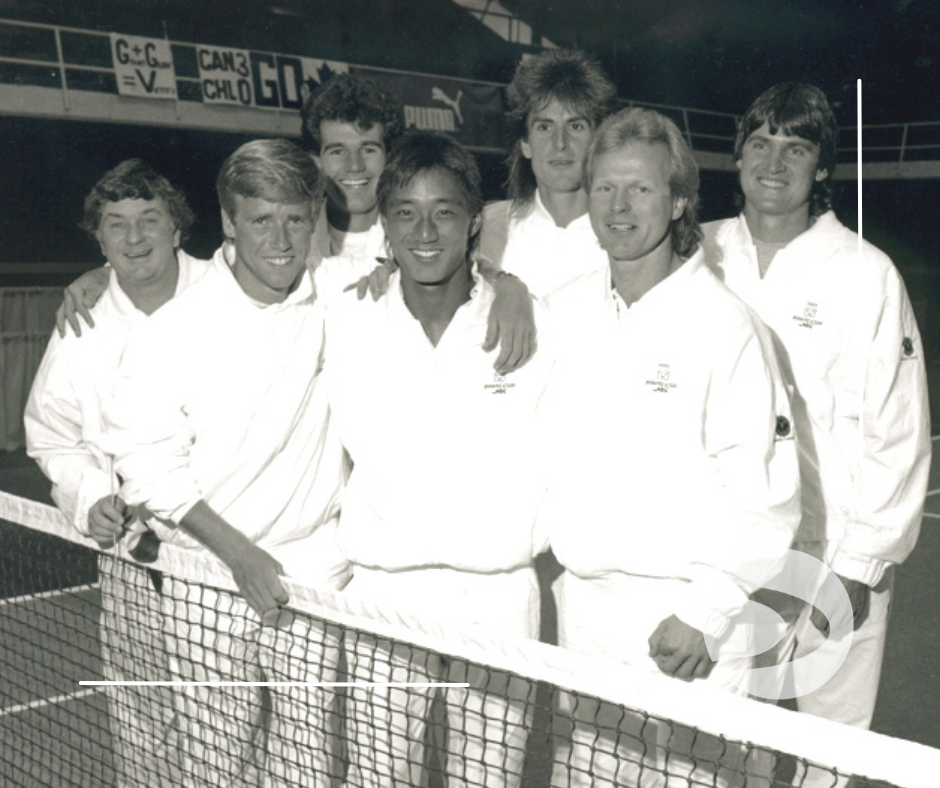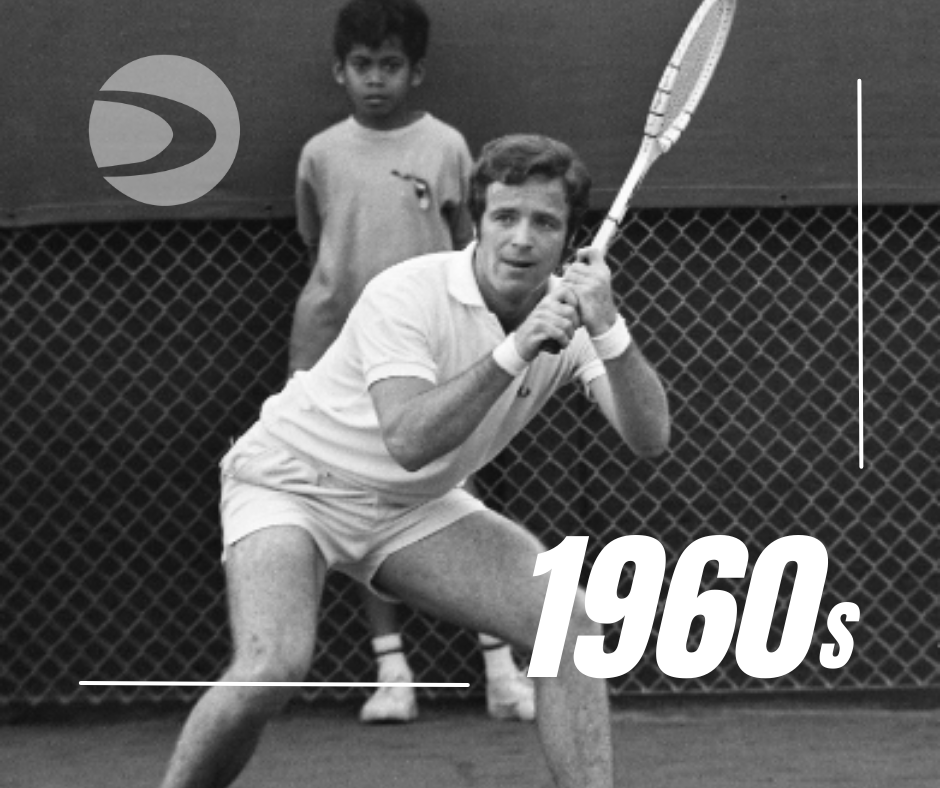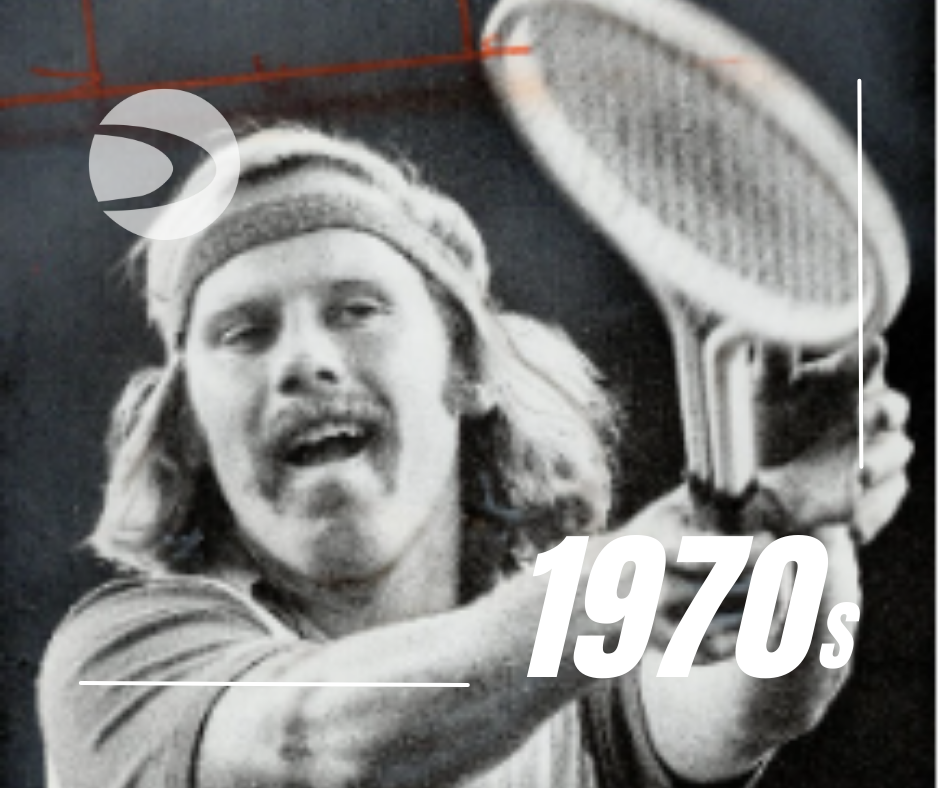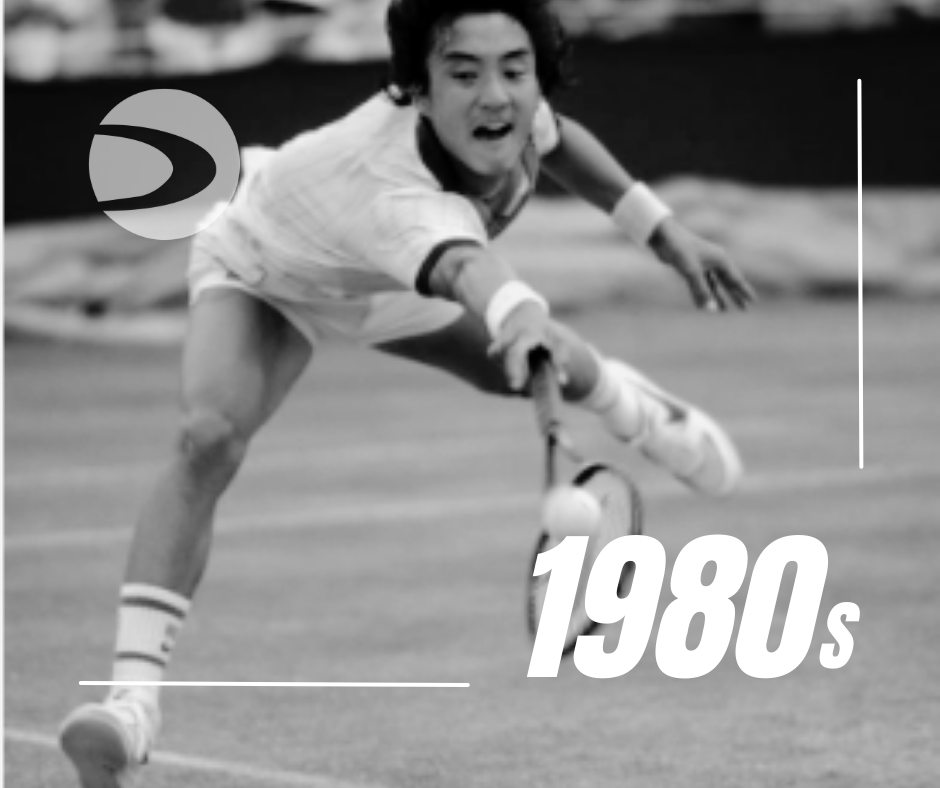Editor’s Note: The Greenan family is synonymous with tennis in Cambridge. From his son Mark, a Canadian Davis Cupper, Harry has been responsible on an ongoing basis for developing some of Canada’s best players.
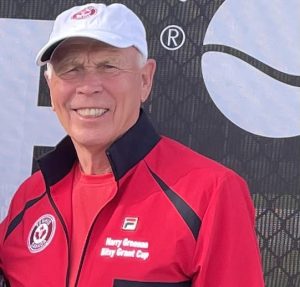
Harry was ranked 10 in Ontario U18 at the age of 17 and as high as 3 in the open division in Ontario through out the 70?s. Won the National over 35 singles and doubles in 1983, National over 35 indoors singles in 1984 and the over 45 Eastern indoors in 1993.
CTA Level III Professional with over 50 years of full time teaching and 62 playing experience. Member of Ontario’s Coaching and Instructor Development committee for over 25 years. Head Course Conductor for O.T. A. and C. T. A. Instructor Certification Programs 1974 – 2001. Chairman of the Professionals committee and Vice President of the OTA for many years.
Director of Courtside Tennis Academy Junior Development Programs, which have produced World, National and Provincially ranked players. 2010 Cambridge “Sports Contributor of the Year”. 2011 Tennis Canada “Coach of the Year”. 2012 received Tennis Canada’s “Distinguished Service Award”. 2013 Inducted into Cambridge Sports Hall of Fame. 2017 inducted into Waterloo Region Hall of Fame.
================================================
OC: Harry, you have been a mainstay of Ontario tennis for years. What was your path from player, coach, and facility owner?
I started playing Tennis at 13. Being Scottish, my #1 sport was Soccer. Don Rope started a Jr Tennis Program about 1960, offering free lessons. I was all over it. I had always wanted to play tennis, but there was never an opportunity. I couldn’t play tournaments for a few years; I was on the Men’s travel soccer team. We practiced twice a week and a game every weekend. When I was 15, I quit soccer and started to play tennis tournaments. By 17, I was ranked in the top 10 in Ontario U18. I’m not sure how well I knew how to play tennis, but I learned how to compete. In February 1972, Ralph Farley opened an Indoor Tennis Facility under Guelph’s year-round Air Supported Structure. He hired me to manage it and teach lessons. In 1972 I took the OTLA certification course newly formed by Peter Dimmer. In 1973 I took 14 days with Dennis Van der Meer in Lake Tahoe, Nevada, at his Tennis America University. Dennis was a Tennis innovator and highly respected around the World. In 1972 Don Steele, Director of the OLTA, called and asked If I would run a High-Performance Program for Jr’s. We got indoor court time every Saturday and Sunday from 6-8 am. We had 12 kids from Waterloo, Brantford, Cambridge, Guelph and Fergus. Many of them became nationally ranked and earned scholarships to US universities. Most of them still enjoy the game, and at least one (Pat Babcock) still represents Canada in the World Championships. The hours and location have changed, but this program is still going on and is in its 50th year. Between 1972 and 1975, in addition to the Guelph club, Ralph and his partner Andy King opened clubs in London, Brampton and Cambridge. I became a minor partner and ran all four clubs’ pro shops and programs. At this time, Brothers John and Bill got involved in the Business. In 1980 we bought the Cambridge Club and focused on that club and several outdoor locations.
OC: Which one of these three roles do you enjoy the most?
I always found the coaching most rewarding. Nothing is more rewarding than helping a young person try to be the best they can be on and off the court.
OC: The Greenan family has been part of the Ontario landscape for years. Was it always a family affair?
My Brothers John and Bill were also born in Scotland. Terry was born in Galt in 1959. He played a bit of tennis but nothing serious.
John, Bill, and I were like the three musketeers. What one did, the others were right behind. When I started playing tennis, so did they. John and his son Daryl represented Canada in the World Father and Son Championships several times. Two of John’s three kids were on scholarships in the US. Daryl at Valdosta State and Michelle at Illinois State. Jennifer played well enough but had a severe car accident in 1994. Thankfully she is still with us but never played again. Michelle met her husband Andrew at ISU, and their two kids, Ashley and Andrew, are both great players and will be in the sport for life. Daryl is in the VSU hall of fame and is the Head Woman’s Tennis Coach at Mississippi State. My son Mark and James took up the game very young. Mark went on to play Davis Cup for Canada. He won 4 National Doubles Titles in a row and was in the finals 9 out of 10 years. He played #1 for Wake Forrest and was All-American. He played the tour for a while after school. He had some great wins over players ranked in the top 100. Now, does a great job mentoring potential National Champions in our Program. My son James was Provincial U18 Doubles Champion and a top 10 nationally ranked Jr singles player but chose to give it up after Jr for other interests. Happily, he tells me he’s back playing again at 53, Mark’s kids Tyson, Joel and Katie play some tennis but nothing serious. Joel has started to do a bit of coaching this year. James’s Kids, Jacob, Emily, Marin and Jasia, didn’t take up tennis but are exceptional in Robotics, Piano, Ballet, Horseback Riding and one Blackbelt in Karate.
OC: You have coached many international/national players, one of which was your son, Mark. How was the experience of a father coaching his son?
It was a privilege. I learned a lot from working with Mark. The memories I have are priceless. I always tried to keep the Tennis on the court and not at the dinner table. I think it’s essential for a Parent to make sure that their child feels loved, win or lose. Any comments that could be taken as criticism be about the tennis, not the child. I’ve been very fortunate to have coached many great kids who are as close as Family. One, in particular, is Sonja Molnar, whom I’ve coached since she was 5. She won the U18 Provincials and Nationals and had 100 wins in 3,1/2 years playing #1 for the University of Iowa; she played the tour for a while and won some $10,000 tournaments. We’ve spent a lot of time together, and she is still a big part of my life and business.
OC: What do you attribute your success to in your ongoing development of top Canadian juniors?
Firstly, how I answered the previous question applies whether they are your child or someone else’s. Secondly, I think it helps to get local kids you get to know. All our kids could live at home and have a family life. We didn’t try to grow too big. Having players like Jane Young, who was National Open Champion and played Fed Cup and my son Mark, as I said before, who Played Davis Cup both in our program at the same time back in the Mid ’70s to mid-’80s, really gave us all confidence that we were doing something right. They also set a high standard for everyone in the program.
Lastly, we’ve been in Cambridge and Guelph for the last 50 years. The students know we’ll be there for them day after day. From 1972-1997 I don’t remember losing a student to another coach. From the late 90s until now, you’re getting kids trying different coaches. It’s not that these coaches aren’t good. They don’t have the background of how the kids got where they are. Often the kids don’t have the time or patience to work through a new approach.
If there are two pieces of advice I would give parents, it would be: once your child gets to that competitive level, find a program and coach with experience and other kids with similar ambitions. Don’t keep switching coaches. Switching sets them back, do it as little as possible. Don’t try to coach them yourself from YouTube videos. Unless you’ve got a trained eye, you can misinterpret what you’re seeing, and a lot of general advice won’t necessarily help your child.
OC: What would you like to see happen in Canadian tennis in the future to grow this fantastic game?
In my opinion. We have a great coaching system set up right across Canada. Many excellent private Academies have what it takes with some financial support from TC to develop top players. Let them do the job of creating the leading players. When these players need financial support to travel, TC will have the money to help them from what they’ve saved from building training centers and staffing them. It’s very much like running a club. If you cater to the best players, which would be less than ½% of your total membership, your club will be closed in no time. I hope Tennis Canada realizes soon it needs to grow the Game at the Recreational level. We need to develop new ideas to get more mature adults into the game and keep them there before we have Pickleball lines on all the Tennis Courts in the country.



